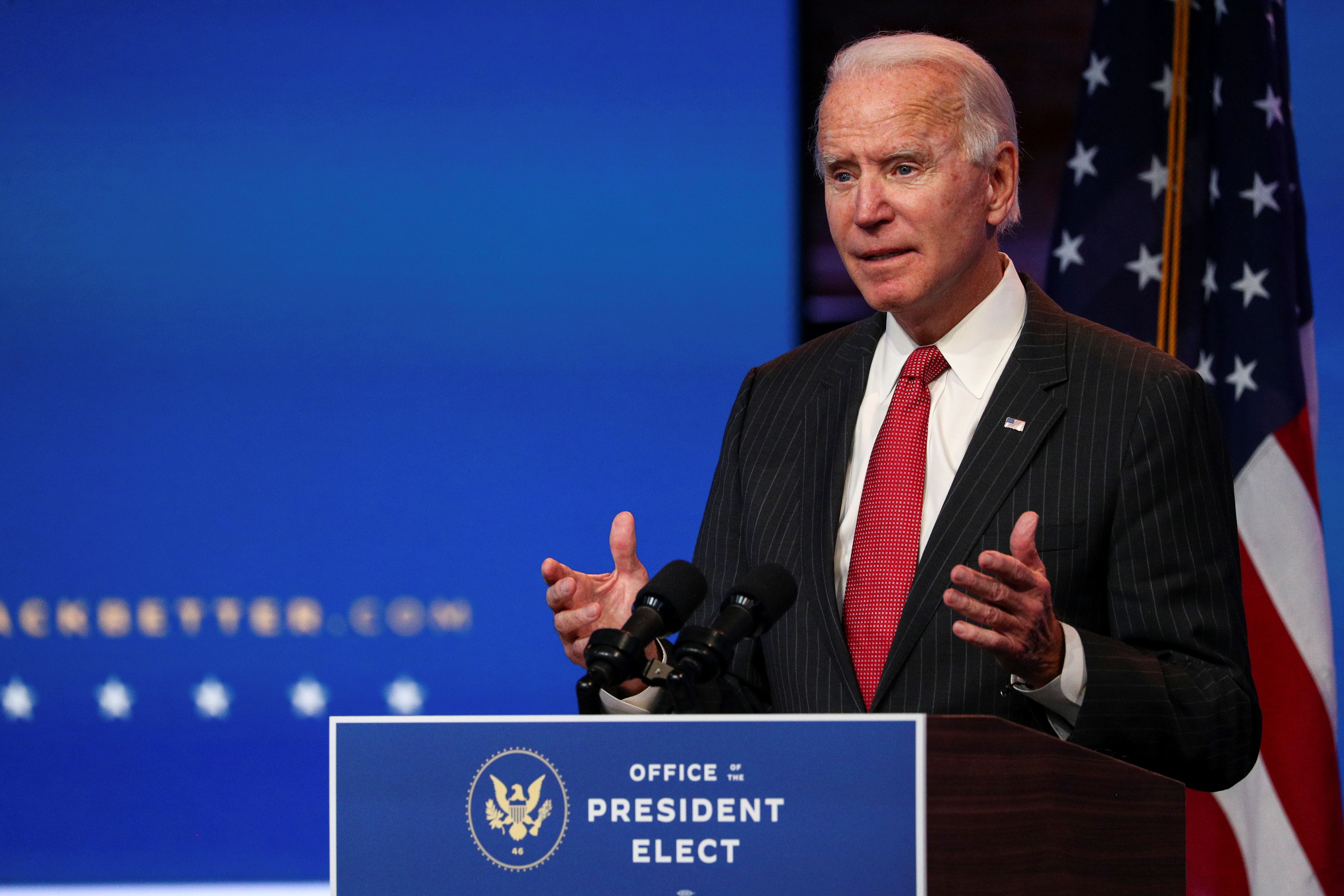The Difficulty of Finding Compromise: Joe Biden and Congress

To maintain the majority in the Senate (51 seats), the Republican Party (GOP) must win at least one of the two Senate seats in Georgia, where a second round of voting will take place on 5 January 2021. After the elections on 3 November, the balance of power of the parties in the Senate is 50 Republicans and 48 Democrats (including two independents who “caucus” with the Democrats). In Georgia, where Republicans dominated for decades, the trend has been towards electing more Democrats. Of the two races, one is a virtual tie while the GOP candidate is favoured in the second. If the Democrats win both races, the Senate would be evenly split, 50-50, leaving the tie-breaking vote to Vice-President Kamala Harris, also the formal president of the Senate. However, this is less likely.
Potential Areas of Dispute
The lack of a Democratic majority in the Senate would mean that Biden will not be able to pass bills and make key appointments without collaboration with Republicans. The president still will have the power to issue executive orders, which are free and constitutionally unlimited decrees to enforce the law and manage administrative resources and personnel. However, for the efficient functioning of executive power, including introducing new initiatives and reforming the country, legislation and cooperation with both houses of Congress are necessary.
After the new Congress is sworn in at the beginning of January 2021, the majority leader in the Senate, Republican Mitch McConnell, will be able to continue to control the chamber to block the president’s initiatives, including bills, nominations of officials (about 1,200-1,400 positions in a new administration require Senate approval), and federal judges. The Senate Republicans would be able to force Biden to name candidates that meet their expectations, especially ones who are moderate and not connected with the progressive wing. A similar situation was encountered by President Barack Obama, whose party lost the majority in the House of Representatives in 2011 and the majority in the Senate in 2015. From that point on, Obama focused on achieving goals in domestic and foreign policy through executive orders (such as introducing new sanctions), many of which were later rescinded unilaterally by President Donald Trump.
Faced with obstruction in the Senate, Democrats will be unable to implement voters’ demands for immigration or climate-change reform, which require Congress to allocate additional budgetary resources. Without compromise with the Senate, it also will be impossible to pass further economic stimulus packages necessary to counter the crises caused by the COVID-19 pandemic. The Senate majority also can affect some of the president’s foreign policy choices. For example, although U.S. re-accession to the nuclear agreement with Iran (JCPOA) or the Paris climate agreement does not require approval by the Senate, the adoption of laws related to the reduction of CO2 emissions may require the chamber’s consent.
The GOP will be driven mainly by its voters’ expectations. In recent years, and especially during the Trump presidency, the electorate of the country has polarised. GOP voters have become more extreme in their conservatism and will likely demand near-total obstruction of the Biden administration, especially progressive initiatives. Republican politicians will try to maintain their popularity with conservative voters before the Congressional elections in 2022, hoping to regain control of the House of Representatives, especially since the elections will be held after the process re-shaping voting districts, largely controlled by state legislatures, which the GOP dominates. This re-shaping often improves the chances of victory for Republican candidates.
Potential Areas of Compromise
Despite the rivalry between the GOP and the incoming Biden administration and Democrats in Congress, both political circles will need to find agreement in some areas. The most important challenge in the new term of office will be fighting the effects of the COVID-19 pandemic. Both as candidate and as president-elect, Joe Biden has promised to fight the spread of the virus and tackle the economic crisis. According to public opinion polls on the pandemic, the Democratic electorate considers the virus itself the greater threat, while Republican voters prioritise the economic consequences of the restrictions countering it. The Biden administration’s fight to end these crises must weigh the expectations of Republicans, especially in the Senate where McConnell aims to limit new stimulus spending.
In foreign policy, cooperation between the parties will be facilitated by the consensus on the role of the U.S. in NATO, the deepening of transatlantic relations, and Russian revisionism. The basis for cooperation, however, will be the prevailing agreement that China poses a threat to the U.S. and must be countered in every area to limit its international influence. The protectionist trade policy applied by the Trump administration did not deliver the expected reduction in the U.S. foreign trade deficit. Traditionally advocating free international trade, Republicans will have the opportunity to revert to supporting free trade. At the same time, they may present a protectionist attitude regarding possible changes in tax regulations towards American companies operating globally, such as the planned digital tax in the EU. This attitude could also be adopted by the Biden administration.
Pressure from Progressive Democrats
During the campaign, Biden cooperated with and earned key support from progressives. Biden is under intense pressure from progressives to implement left-wing policies and push for progressive initiatives, however, this may prove impossible given the likelihood of obstruction from the GOP and need for compromise in the Senate. The influence of progressives in the administration may be less significant than they expected before the elections. The passing of bills, which requires agreement between the chambers of Congress, or appointments to high-level administrative positions approved by the Senate will most likely require a centrist approach. The control of the Senate by the GOP will not, however, directly limit the influence of progressives on decisions made independently by the president.
Conclusions
If the GOP is successful in keeping the majority in the Senate, the first months of dealing with the Biden administration will show whether they will clash or cooperate in certain areas. Reaching compromise will result in centrist domestic policy and a continuation in many areas of foreign policy. However, if the Senate majority pursues only a policy of obstruction, Biden may seek an altercation to demonstrate that the Republicans do not want compromise. Then, progressives may gain more influence in administration policymaking.
The GOP’s goal in the Senate will be to maintain the mobilisation of the conservative electorate until the elections for the House (all) and Senate (one-third) in 2022. Until then, the GOP will manoeuvre between the need for cooperation with the administration on economic issues (support for businesses affected by the pandemic) and blocking social and anti-pandemic initiatives Republican voters find anathema (temporary economic shutdowns, healthcare reform).
It will be in Poland’s interest, along with building cooperation with the new administration, to deepen relations with members of both parties in Congress, especially those supporting the development of transatlantic relations. Poland should create tools for cross-party involvement in Congress to support the presence of U.S. forces in Central Europe and American participation in the Three Seas Initiative, for example. by initiating (together with other countries in the region) a caucus of representatives and Senators and increasing activity in the field of parliamentary diplomacy.



